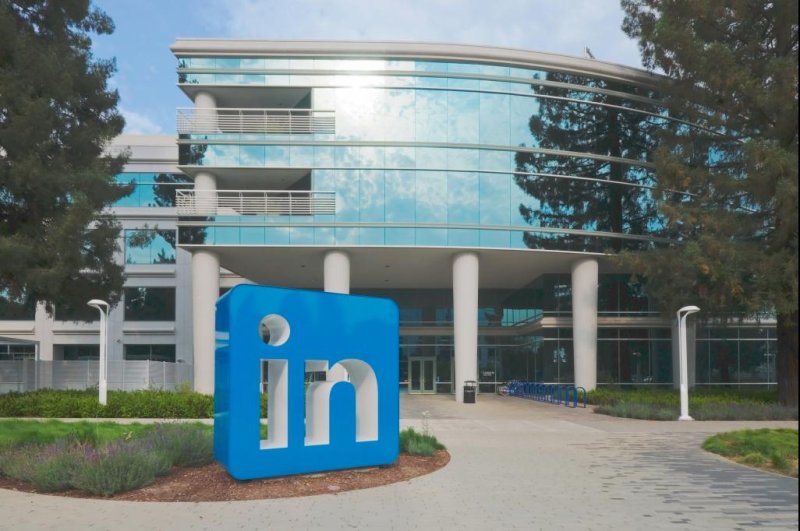LinkedIn Headquarters in Sunnyvale, Calif. Photo courtesy of
Wikimedia
Sept. 25 (UPI) -- LinkedIn ran secret social experiments on around 20 million of the site's users in a sweeping five-year study on the strength of social ties in professional networking, according to reseachers.
In a study published in the journal Science, researchers conducted "multiple large-scale randomized experiments" from 2015 to 2019 using the professional networking site's People You May Know algorithm to test the strength a person's weaker social ties have on the job hunt.
The team, led by LinkedIn researchers Karthik Rajkumar and Guillaume Saint-Jacques, included researchers from MIT, Harvard Business School and Stanford University.
LinkedIn did not notify users they were the subject of social experiments before running them.
Tech companies often carry out similar experiments, known as A/B testing, to improve user experiences but the LinkedIn study shows how such practices can impact people's lives such as their ability to find jobs.
However, the study authors wrote that the experiments generated "2 billion new ties and 600,000 new jobs" that were created. LinkedIn's privacy policy notes that users' personal data can be used to conduct research on "social, economic and workplace trends."
The study centered on the theory in sociology of the Strength of Weak Ties, described by the authors as "one of the most influential social theories of the past century."
"Weak ties are thought to be specifically well suited to deliver new employment opportunities because they provide novel labor market information, making job mobility a centerpiece of the original weak tie theory," the study reads.
In its experiments, LinkedIn randomly adjusted its algorithm for users to emphasize either stronger or weaker ties for users in the People You May Know feature, which suggests people for connection.
As a result, some people formed either more or fewer connections with weaker ties than stronger ties than people in the opposing group.
The company then analyzed data from the people in the groups to determine which was more successful in seeking employment.
The study found that a person's weak social ties on LinkedIn, which is owned by Microsoft, were twice as effective as stronger ties in helping them find jobs.
"The findings suggest that some users had better access to job opportunities or a meaningful difference in access to job opportunities," Michael Zimmer, director of Marquette University's Center for Data, Ethics and Society, told The New York Times.
"These are the kind of long-term consequences that need to be contemplated when we think of the ethics of engaging in this kind of big data research."
Rajkumar defended the professional networking site's study and said he was "proud of this work" which was "done using historical data" in a statement on LinkedIn.
"Everyone on LinkedIn was better off, and no one worse off, during and as a result of this study," Rajkumar said.
"If even one person reaches out to a weak tie in their professional network and secures a job thanks to our study, then our work has been a success. We can't wait to see how the study helps companies, recruiters and job seekers change the way we think about the labor market."















